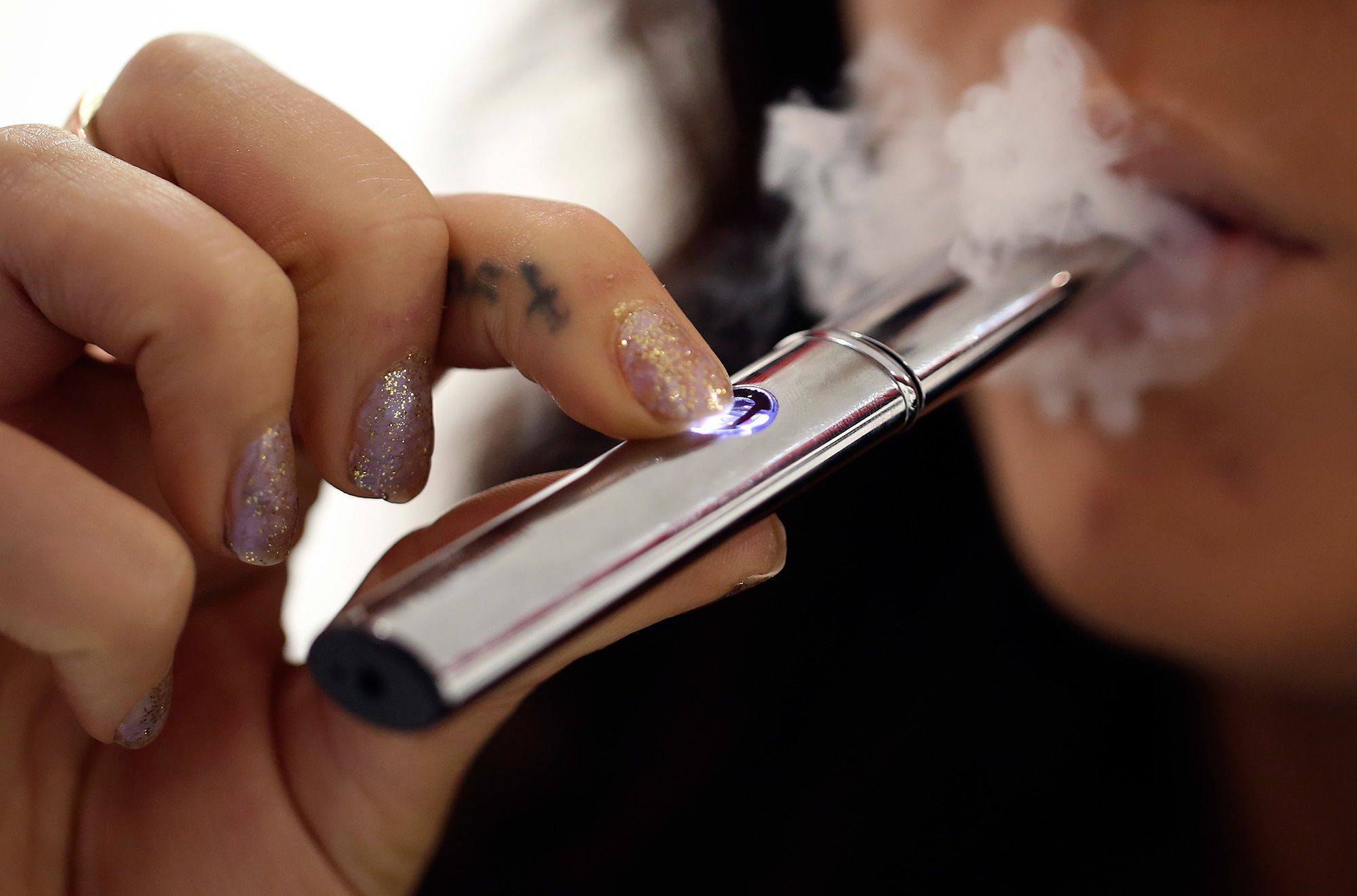
Chris Ratcliffe | Bloomberg | Getty Images
The number of cases of a deadly lung illness linked to vaping appears to be “leveling off or even declining,” a Centers for Disease Control and Prevention official said Friday.
“It’s serious and potentially fatal, but it is preventable,” Dr. Anne Schuchat, the CDC’s principal deputy director, told reporters on a conference call.
Warnings from health officials about the dangers of vaping and actions by authorities on the product supply chain may be partly responsible for the ease in vaping lung cases, Schuchat said.
The CDC has confirmed 1,604 probable cases as of Tuesday, with 125 new cases diagnosed in the last week. Patients have been found in 49 states and D.C. and the Virgin Islands. The number of confirmed fatalities rose from 33 last week to 34 this week.
Public health officials still don’t know what’s making people sick. Most patients have reported vaping THC, the active ingredient in marijuana, according to the CDC. The latest national and state findings suggest products containing THC, particularly those bought off the street or other informal sources like through illicit dealers, are linked to most of the cases, the CDC said.
Officials said Friday they’re not just looking at what’s being vaped but also whether the heating process in e-cigarettes could be playing a role in the illnesses.
“There could be more than one cause,” Schuchat said.
The CDC is tentatively calling the illness EVALI, short for e-cigarette, or vaping, product use associated lung injury. Investigators are trying to unravel how the epidemic started. The first vaping-related illnesses appeared in April and rapidly increased beginning in July, even though consumers had been vaping for years.
On the conference call, Schuchat theorized that the rise of nicotine-filled e-cigarettes may have laid the groundwork for teens to start experimenting with riskier products that led to the illness.
Some individuals who vape “are more frequently starting to experiment with other products,” she said. “That may be laying a fertile ground for the expanded use of risky products.”
Schuchat also warned that public health officials still don’t know how the flu or other respiratory illnesses circulating during the winter may impact patients with a vaping-related lung illness.
